- Home
- Kay Hooper
The First Prophet Page 19
The First Prophet Read online
Page 19
“Right.”
He watched her move away from the window toward the doorway to the bedroom and made no effort to stop her. He wanted to. He wanted to call her back or go after her, to try to close the very real distance between them. But he couldn’t.
Sarah had discovered his Achilles’ heel, and if only to protect herself when he pushed and keep him out, she had learned how to use the knowledge against him. Until he could bring himself to face his demons, he had no defense against that tactic.
She paused at the door and looked back at him. As if nothing had happened, she said, “The psychic we’re going to try to approach tomorrow—what did you say his name was?”
“Mason,” Tucker replied automatically. “Neil Mason.”
She nodded. “Good night, Tucker.”
“Good night, Sarah.”
Patty Lowell looked out her kitchen window for the fourth time in half an hour, just to reassure herself that Brandon was still out there playing in the sandbox with his dinosaurs, safe in their fenced backyard. He was, and she stood there for a few moments watching him before returning to her baking. It wasn’t like her to be a nervous mother, but this was the third morning in a row that her five-year-old had awakened asking her anxiously if they could hide from the bad men.
Adam thought she was crazy, but Patty was convinced that Brandon had a special gift. He had always been an intensely sensitive child, filled with wordless terrors and worries, but now that his language skills were better developed, he was able to communicate his thoughts and fears more clearly than he had as an anxious toddler.
Poor little Brandon was frequently afraid. He didn’t like the dark, or closets, or scary movies, and there was one place in the upstairs hallway of their old house that upset him terribly. “There’s a lady, Mommy. She keeps crying.” That was all Patty could get out of him. She’d never believed in ghosts, but she now gave that particular spot a wide berth.
Brandon had also startled her more than once by carrying on casual conversations with “the people.” The people were not, apparently, connected to this house, since he talked to them on the playground and at his cousins’ house and even at the Atlanta church where she took him to Sunday school. And they didn’t seem to be threatening people, since Brandon displayed no anxiety at all about them.
But the flesh-and-blood people around him were beginning to notice. Her sister had made a remark just the other day about Brandon and his imaginary friends. And some of his little friends were beginning to tease him. Brandon, always a shy child with a mostly solitary nature, was becoming reluctant to get out of sight of his mother.
Adam said she was spoiling him, catering to his “childish fears and overactive imagination” by sticking close to him, but Patty didn’t care. She was worried. Brandon was convinced that the “bad men” were coming to take him away, and it frightened him so much that it frightened her even more.
He could never tell her who these bad men were or even what they looked like, and since Patty’s questions had only upset him further, she had stopped asking. Just bad men, was all he knew or could say. Bad men in the dark.
That thought sent Patty back to the window. And as soon as she looked out, her throat closed up and shards of ice stabbed at her heart.
“Brandon?”
She rushed out the back door, staring at the empty sandbox and then looking wildly around the backyard. The gate was still closed; she could see the lock still fastened. But Brandon was nowhere to be seen.
“Brandon!”
Sarah gazed out the car window and murmured, “A nice, normal little house in a nice, normal little neighborhood. I guess Neil Mason’s neighbors don’t know he’s psychic.”
“Or don’t care,” Tucker said.
“If they know—they care,” Sarah said out of bitter experience.
The Jeep was parked across the street and half a block down, where they could look at the house without attracting undue attention. The neighborhood was quiet on this Wednesday morning, and so far they had seen no sign of life at Neil Mason’s house.
“Anything?” Tucker asked, even more wary after their tense standoff of the night before.
Sarah wanted to snap at him to stop pushing her, but she was all too aware that this time he was right to do so. She studied the rather plain but pleasant two-story house, and hesitantly tried to “listen” to what her senses might attempt to tell her.
She felt…odd. The pressure she had been so conscious of was all but gone, only a whisper of it remaining. And what she heard was only a whisper, so quiet and distant that focusing on it was like straining to hear someone breathing on the other side of a vast room.
…he knows…he knows…he knows you’re coming. He knows what they want of you. He has the answers you need. He knows…
“He knows.” Sarah was hardly aware of speaking aloud.
“Knows what?”
The whisper faded to silence, and Sarah turned her head to meet Tucker’s guarded gaze. “He knows we’re coming.”
“Is he on our side? Or with them?”
“I don’t know.”
After a moment, Tucker nodded. He opened the storage compartment between the Jeep’s bucket seats, took out his automatic, and leaned forward to place it inside his belt at the small of his back. His jacket covered the gun so that its presence was hidden.
“Okay. Let’s go find out.”
Sarah was reluctant to leave the vehicle, where there was at least the illusion of safety, but she knew they had no choice. She got out and walked with Tucker across the street. All the way across and up the walkway, she tried to listen, but heard nothing. She was dimly surprised, when they reached the porch, that Tucker had to ring the bell. It bothered her somehow, though the feeling was no more than vague disturbance.
The man who opened the door was big. That was the first impression. Easily six and a half feet tall with shoulders to match, he had the appearance of a man of immense physical strength, even though approaching middle age had given him a belly that his belt rode beneath and the fleshy look of indulgence around the once-clean jawline of his rugged face.
The second impression Sarah got was that he wasn’t nearly as happy to see them as his smile indicated.
“Hello.” His eyes tracked past Tucker and fixed on Sarah. They were blue and very bright. “Hello, Sarah.”
“Hello, Neil.” Sarah drew a breath, and added, “I recognize you.”
“Yes, of course you do,” he said matter-of-factly. He stepped back and opened the door wider. “Come in, come in.”
Tucker caught Sarah’s arm when she would have moved forward. “Recognize him?”
She nodded. “Bits and pieces of my vision keep coming back to me. There were faces. His is one of the faces I saw.”
Without letting go of her arm, Tucker looked narrow-eyed at Mason, who stood patiently, smiling, waiting for them to come in. “Do you trust him, Sarah?”
Her smile reminded him oddly of Mason’s—the tolerant amusement of a parent for a child. He didn’t like it.
“Of course not, Tucker.”
“Then we’ll find someone else.”
“It’s all right,” she said. “We’re safe here. For now.”
Tucker released her arm when she started forward again. He didn’t like this—all his instincts were screaming at him—but he followed her into the house nevertheless. In this situation, he felt he had to defer to Sarah, to accept her lead. She was the psychic, not him.
Still, he was uneasily aware that her belief in fate was strong enough to place them both in danger; Sarah was, he thought, perfectly capable of walking into a house she knew was dangerous only because she was utterly sure fate intended her to be there. That was one reason he continued to try to convince her that her choices could determine her own future—though he didn’t flatter himself that he’d made much headway.
Sarah’s blind spot was her belief in destiny, and until she could see past that, she was so vulnerable it was terrifying.
So Tucker walked into Neil Mason’s house with all his senses wide open, as alert to possible danger as he’d ever been in his life. Even so, the first few minutes seemed to be designed to put him at his ease. Mason showed them into a pleasant living room and invited them to sit down, then went away briskly to fetch coffee. Music played softly in the background, unobtrusive but soothing. A fire crackled brightly in the rock fireplace, dispelling the chill of the morning here at the end of September.
It was all very…pleasant. Very ordinary.
It made Tucker extremely wary.
“If you don’t trust him,” he said to Sarah, “then why are we here? There are other psychics we can try, including two more right here in Syracuse.” He stood near the leather couch watching her move restlessly around the room.
Sarah paused to scan the titles of some books on shelves near the fireplace and answered him in an absent tone. “It’s important that we talk to him.”
“Why?”
“Because he knows.”
Tucker drew a breath and held on to his patience. He thought that Sarah was being deliberately vague and uninformative, and it bothered him. She claimed that trust was not an issue with them, yet ever since the lake he’d had the feeling that she knew more about this situation than she was willing to say; if it wasn’t a lack of trust that kept her silent, then what?
“Knows what, Sarah? You said he knew we were coming here. Is that all?”
“No.” She moved back to the fireplace and looked at the flames for a moment, then lifted her gaze to meet his. “He knows why they’re after me.”
Tucker refused to get too excited. “Will he tell us?”
She tilted her head a little as though listening to a distant voice. “I don’t know. Probably not.” Her reply was matter-of-fact.
“And you still don’t know if he’s with the other side?”
“No. But leave this to me, Tucker. I have to handle him my own way. It’s important.”
Before Tucker could say anything else, Mason returned with a tray and the opportunity was lost. But Sarah had told him nothing to reassure him, so Tucker refused coffee and remained on his feet when Sarah came over to sit on a chair across from the couch. He moved to where she had been standing at the fireplace and turned his back to the flames so he could keep an eye on Mason as well as have a clear view of the door and windows.
“He’s very cautious,” Mason said to Sarah, handing her a cup of coffee and sitting down on the couch.
“He has reason to be. We both do.”
“I imagine so. But I’m harmless. You might reassure him of that.”
Sarah smiled. “Today, he’s a guard. And a guard should always be wary.”
Tucker elected to remain silent, as much as he disliked being discussed as though he’d left the room. He leaned his shoulders back against the mantel, crossed his arms, and watched them. And within a very few minutes, it occurred to him that what he was seeing was a performance where each word and gesture was both meticulous and deliberate. A dance where each knew the steps and the music, and where only one would remain standing when it was all over.
“How did you choose me?” Mason sipped his coffee.
Sarah set her cup on the coffee table untasted. “We have a list of surviving psychics in this general area. You were at the top.”
Mason smiled at her, that curiously tolerant smile of a parent for a child, a master for a neophyte. “Ah. Then you didn’t hear me calling to you?”
“No.” Sarah appeared undisturbed by this. “Was I supposed to?”
“Well…if your abilities are genuine, I would have thought…However, it’s no matter. You’re here. Where you were supposed to be.”
This time, Tucker had to bite his tongue to remain silent.
“Was I supposed to be here?” Sarah was innocently surprised.
Mason’s smile widened. “Of course. You must know that. The visions and dreams, the voices in your head—they must have told you.”
“Destiny.” Sarah nodded thoughtfully.
“Exactly.”
“So those are the voices I should listen to? The ones whispering that what must be—is?”
Sober now, Mason nodded. “Those are the truest voices, Sarah. It’s why you—we—hear them the clearest.”
“Then I can change nothing I foresee?”
He hesitated, those bright blue eyes searching her face. Then he shrugged almost offhandedly. “There is a difference between prediction and prophecy. When you see what is fated to happen, it will. No matter what you or anyone does to try and change it. That is prophecy. But you may also see a possible outcome in a given situation, and that may be influenced by the actions and choices of yourself and those around you. That is prediction.”
“How can I tell the difference?”
“With practice. They feel different.”
Sarah didn’t appear to find that response inadequate; she merely nodded and changed the subject. Abruptly. “So which is of the greatest value—prediction or prophecy?”
For the first time, Mason seemed caught off guard. “I—don’t understand, Sarah.”
“Of course you do.” Sarah smiled. “It’s a simple question. With a very simple answer. Why are my abilities important, Neil? Because I can make predictions? Or prophecies?”
His smile was gone and his eyes were not nearly so bright. But he replied readily enough. “Each has its own sort of value.”
“Ah. And they have a use for both?”
Mason leaned back in his chair suddenly, and Tucker had the distinct feeling it was because he needed to put distance between himself and Sarah. And there was, now, something wary in his eyes.
“They? Who are you talking about, Sarah?”
“The other side.” Her voice was casual, almost indifferent.
“Other side? You talk as if there’s a battle going on.”
“Isn’t there? Isn’t it very simply a battle—between good and evil?”
Mason frowned. “Nothing is simple. And nothing is purely good, or purely bad.”
“I think some things are simple. Some truths.”
“For instance?” He was a bit impatient now.
“For instance, the truth that children abducted from their families is an evil thing. Wouldn’t you agree with that?”
“I suppose so.”
“And the truth that anything done to protect them—anything at all—is a good thing.”
Slowly, Mason said, “There are always limits.”
“In protecting children? I don’t think so.”
“Life always gives us limits,” he insisted. “We can only do…so much. Be responsible for so much.”
“So where do we draw the line?” She looked at Mason with an unblinking intensity that disturbed Tucker, and he was standing several feet away; he could only imagine how fierce those too-dark eyes appeared to Mason. But the older man didn’t flinch or look away from her.
“What do you mean?”
“I mean, when do we decide we’ve done enough? When we’ve saved one child? Two? All of them? When we’ve defeated the people who take them?”
“Shouldn’t we leave that to the police?” he suggested. “They’re the best equipped to deal with…crimes.”
“Not crimes against humanity.”
Mason smiled. “Is that what we’re talking about?”
“Oh, I’d say so. Children abducted, disappearing never to return. Adults killed—or supposedly killed. Because what they can do is important to someone. So they’re taken away from their homes and families, from the people who love them. From their lives.”
“Taken? Taken where?”
“You tell me.”
“I?” He laughed quietly. “How would I know?”
“Because you were taken. Once.” Her head tilted to one side in that listening posture. “A long time ago, I think.”
Tucker felt his fingers close over the gun at the small of his back before he was even aware of moving. But he
remained still, gripping the pistol but not drawing it. His eyes never left Mason’s slowly whitening face.
Mason drew a breath as if he needed one, then said lightly, “I don’t know what you’re talking about, Sarah.”
“Yes, you do. What is it they want you to do to me, Neil? Why are you trying so hard to crawl inside my head?”
Tucker glanced at her quickly, realizing for the first time that something else had been going on far beneath—or above—the level of his own awareness. Something deadly. Sarah’s face was as pale as Mason’s and held the taut look of someone concentrating intensely. Or someone in pain.
“I only want to help you, Sarah,” Mason said softly.
“You want to help them. You have to help them.”
“I don’t know who you’re talking about.”
“Them. The other side.”
“There is no mysterious enemy, Sarah. Do you hear me? No battle. Just your imagination. Your fears. Your inexperience.”
“Stop it,” Tucker said.
Neither of them looked at him.
In a gentle tone, Mason said, “I can help you. I can teach you how to use your abilities, how to protect yourself.”
“I’m protecting myself now.” Her voice was strained but steady.
“But look what it’s taking out of you. I can show you a better way, Sarah. I can make it less painful for you.”
“Is that what they taught you?”
“What does it matter who taught me? I can teach you. I can make the pain go away.”
“And keep me alive?”
“Of course.”
“And what’s the price, Neil? What did you sell them to keep yourself alive?”
“Isn’t life worth any price?”
“No. Not any price.”
“That’s what you think now. But one day—soon—you’ll discover you’re wrong. Life is worth whatever you have to pay for it, Sarah. Life is worth any price.”
“What did it cost you?”
He smiled suddenly. “What if I said my soul?”
“Then I’d say you paid too much,” she whispered.
“I said stop it.” Tucker crossed to Sarah’s chair in two long steps and grasped her arm, holding the pistol pointed at Mason with his other hand. “Sarah, we’re leaving.”

 A Deadly Web
A Deadly Web Raven on the Wing
Raven on the Wing Always a Thief
Always a Thief Star-Crossed Lovers
Star-Crossed Lovers Blood Dreams
Blood Dreams Shades of Gray
Shades of Gray Rebel Waltz
Rebel Waltz Chill of Fear
Chill of Fear Sleeping With Fear
Sleeping With Fear After Caroline
After Caroline Time After Time
Time After Time Haunting Rachel
Haunting Rachel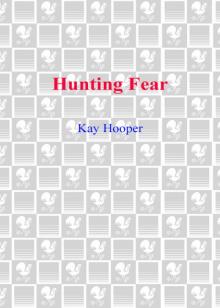 Hunting Fear
Hunting Fear Out of the Shadows
Out of the Shadows Whisper of Evil
Whisper of Evil Blood Sins
Blood Sins Hiding in the Shadows
Hiding in the Shadows C.J.'s Fate C.J.'s Fate C.J.'s Fate
C.J.'s Fate C.J.'s Fate C.J.'s Fate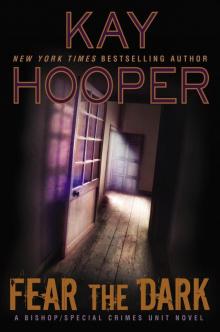 Fear the Dark
Fear the Dark Illegal Possession
Illegal Possession Stealing Shadows
Stealing Shadows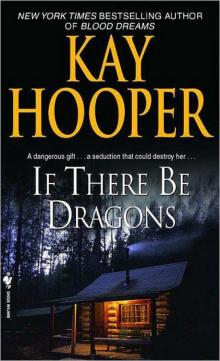 If There Be Dragons
If There Be Dragons Once a Thief
Once a Thief In Serena's Web
In Serena's Web On Wings of Magic on Wings of Magic
On Wings of Magic on Wings of Magic Hostage
Hostage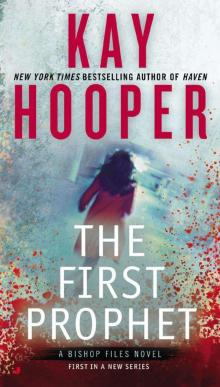 The First Prophet
The First Prophet Through the Looking Glass
Through the Looking Glass Golden Flames
Golden Flames Finding Laura
Finding Laura Haven
Haven The Haviland Touch
The Haviland Touch The Lady and the Lion
The Lady and the Lion Haunted
Haunted Velvet Ligntning
Velvet Ligntning Blood Ties
Blood Ties Adelaide, the Enchantress
Adelaide, the Enchantress The Matchmaker
The Matchmaker Golden Threads
Golden Threads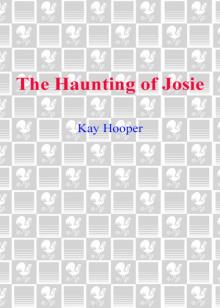 The Haunting of Josie
The Haunting of Josie Rafferty's Wife
Rafferty's Wife Amanda
Amanda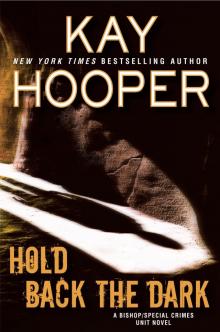 Hold Back the Dark
Hold Back the Dark Sense of Evil
Sense of Evil What Dreams May Come
What Dreams May Come Larger Than Life
Larger Than Life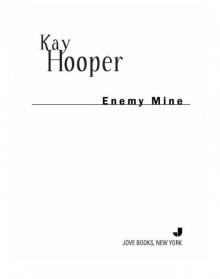 Enemy Mine
Enemy Mine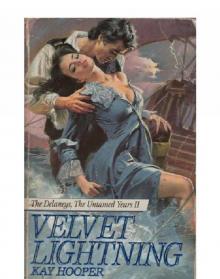 Velvet Lightning
Velvet Lightning The Fall of Lucas Kendrick
The Fall of Lucas Kendrick Aces High
Aces High Captain's Paradise: A Novel
Captain's Paradise: A Novel The Wizard of Seattle
The Wizard of Seattle Lady Thief
Lady Thief Summer of the Unicorn
Summer of the Unicorn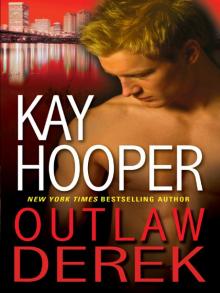 Outlaw Derek
Outlaw Derek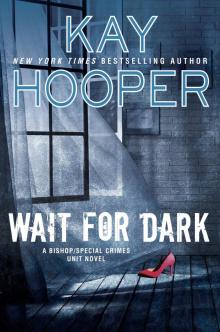 Wait for Dark
Wait for Dark The Glass Shoe
The Glass Shoe It Takes a Thief
It Takes a Thief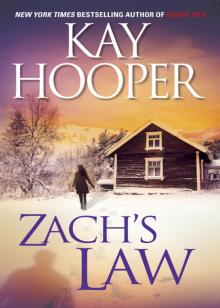 Zach's Law
Zach's Law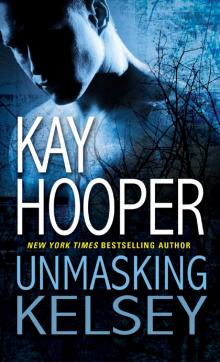 Unmasking Kelsey
Unmasking Kelsey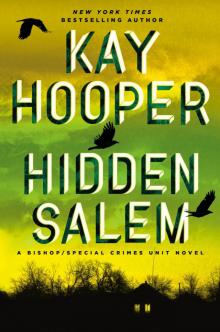 Hidden Salem
Hidden Salem